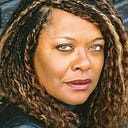Inside the Mind of a Former Gifted Child
“You’re a smart kid and you’re going to go to a school for smart kids,” they told me.
When I was 5 years old I remember visiting the school “for gifted children” that I subsequently attended before I was actually admitted. I sat with a friendly woman who gave me an aptitude test, which, at that age, consisted of tasks like putting pegs in holes and deciphering what picture in a group of pictures was different from the others. They basically tested me on speed, accuracy, and creative thought. That was my assessment, and I nailed it!
At school (I attended St. Ann’s School in Brooklyn Heights for 12 years), there was an emphasis on reading, writing, and creative thinking and I flourished. Classes were very small, and from an early age we would all call our teachers by their first names. The school was a progressive social exploration of education and it was great. I was free to be who I was both at school and at home, and I believe that truly made all the difference.
Empower Smart Girls:
As a female, I remember my mother in particular being excited for me to excel. She was a feminist and let me know in no uncertain terms that I was not only exceptional but that I could be a leader. Both of my parents held education in high esteem. Right from the beginning I was always surrounded by books. They also believed in the arts, so I was given music and dance education very early. I went to rhythm classes practically the moment I could walk without tipping over, and in my teens I trained to become a ballet dancer! Though I never pursued it professionally, I’ve enjoyed the acquired skill.
I was fortunate to partake in these opportunities because my parents realized the benefits that come from trying different things. Now, as far as being smart, I think that I was born smart but I know I was also nurtured early on and had an enriched childhood. Nature and nurture at its best.
Expect Excellence:
A bit about my parents: When I was a child my mother founded a successful children’s clothing store, which she operated until I graduated high school. And then, she worked in magazine advertising for Scholastic, Inc., and finally ended her career as a personal financial advisor. She earned her MBA from Columbia University in a special evening and weekend program while a single mother of three after my parents’ divorce when I was 11. My father had received his MBA earlier and worked for the prominent Martin Segal Company securing pensions and advising organizations on finances. They are now both retired.
Both my brother and my sister are also very smart. My sister was given a full scholarship to library school after college, and my brother was excellent at math in school. Though he majored in history as an undergraduate, he is now a banker. The three of us grew up in a household with parents who wanted excellence for us, and for that we are grateful.
As humans we are constantly evolving our identities and if we are led to believe that we don’t have a certain talent, then we usually won’t choose to explore or exercise it. Given this, why would you tell people that they are just normal? Why not tell them they’re exceptional?
Provide Positive Messages:
I work with creative people, many of whom suffer from low self-esteem. This can be a great hindrance and disadvantage. It’s imperative to build people up so they can flourish!
This buildup of confidence really has to begin in childhood. In my experience, to create is a transformational process, and as I said, evolving is at the core of our identity. What we hear and believe about ourselves affects how we evolve. At a young age I was graded with narratives not numbers — an overall good idea — except that some unhelpful messages got locked into my psyche. For example, if a teacher wrote something like “She is not living up to her potential,” I never forgot the message. To this day I still worry that I’m wasting my potential. Nothing ever feels like quite enough.
Observe Your Smart Child:
It’s crucial to pay attention to the messages children receive, and more importantly, to how they perceive and absorb them.
Physical and emotional environments are essential, and smart children need to know that they’re safe. This can be fostered by having a structure around them that promises them that they can be themselves, do what they love, and discover. Really smart people are very curious about the world. A person who is born with innate potentials doesn’t know the boundaries of those potentials because they are so young. I think if you’re lucky enough to be with a young person who is still wide open and enthusiastic, the one thing you never want to do it shut that kid down; you want to keep people open to it all — to anything they want to try. Doors open for exceptional people, and consequently people love being around them. It is important that there is a genuine community of exceptional people around them because people in that community are going to bring out the best in one another.
Unleashing Adult Potential:
At a very young age, as soon as I learned to write, I wrote little books on scraps of paper that I stapled together. I filled up many journals too. I always knew I wanted to write and I actually feel that it’s taken me all this time — my whole lifespan — to move more in the direction of who I was always supposed to be. Just the same, there are other dimensions of me that I’ve also enjoyed exploring and find valuable.
Years ago I was introduced to the concept of multiple intelligences and resonated with it. My intelligences seem to be auditory and kinesthetic, with an aptitude for seeing complex patterns. This is an interesting capability — useful for writing and editing. Furthermore, I believe I will keep growing into my potential in different areas. I truly believe that we all have unlimited potential.
It is so important not only believe in yourself, but to encourage other people to push themselves to rise higher. Otherwise, if we accept everything at a murky, mediocre level, we will end up in a mediocre world. Imagine how much better the world can be. We can change it by helping people reach new heights.
I like holding the mirror up for other people, helping them to look at themselves in an effort to bring out their best. After doing this for a long time, I realized that people need support to do this and I’ve come to I understand that we all need to be so much gentler with ourselves.
I’ve personally always felt a little alien, but I’m now sure that is a common experience for people as we are all unique. I still feel like I’m sorting it all out, but I love what I do, and I love being smart.
__________________
Reported by Tatsha Robertson; As-told-to by Allison Theresa
Stephanie Gunning is a New York City-based book editor and publishing consultant. She has held publishing jobs at HarperCollins Publishers and was a senior editor at Delacorte Press. The book packaging company she owns and founded is www.Lincolnsquarebooks.com
She can be contacted at contact@stephaniegunning.com.
Originally published at www.tatsharobertson.com on July 19, 2016.

